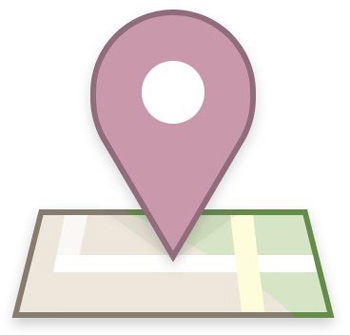
Location based social media applications are all the rage these days. Hanging out isn’t enough anymore. Now you have to whip out your iPhone, Android, or Blackberry and check in, snap a photo, then post to Twitter and Facebook so all of your friends know where you are and what you’re doing at all times. But which mobile application works best? Foursquare and SCVNGR have emerged as two of the most popular and buzz worthy applications thus far. We’ll compare them to help you figure out which one you should download.
Geosocial Networking: Foursquare

Foursquare was one of the first companies to launch geosocial networking into the mainstream. Started in 2009 by Dennis Crowley and Naveen Selvadurai, it quickly became popular application amongst smartphone users (iPhone, Blackberry, and Android). Today Foursquare boasts approximately 3 million users worldwide.
Foursquare definitely has the cool factor on their side. You check in somewhere and you automatically know how many other Foursquare users have checked in as well. However, until recently the check-in was all you could do with the Foursquare application. Other geosocial networking applications like SCVNGR took the Foursquare blueprint a step farther and incorporated other interactive options like challenges and rewards.
In the past few weeks Foursquare has updated their formula. Now you can do challenges and earn rewards for checking in at the same place multiple times. This gives Foursquare users incentive to check in everywhere they go, as they have partnered up with other brands for exclusive promotion.
Although Foursquare wears the crown for the most users, their rate of growth is beginning to plateau with the popularity of other location-based mobile applications, including SCVNGR and most recently, Facebook Places. The introduction of Facebook is a game changer, as it has adopted the Foursquare formula (i.e. the basic check in). Facebook has 500 million users to Foursquare’s 3 million. It’s hard to compete with an Internet giant like Facebook. Look for Mark Zuckerberg and company to become a major player in the geosocial networking realm in the coming months.
Geosocial Networking: SCVNGR

Started in 2009 by Ivy Leaguer Seth Priebatsch, SCVNGR has quickly developed into a geosocial networking giant. With huge start-up funding from Google, SCVNGR has been able to build up quite an impressive resume. Even though it’s incompatible with Blackberry devices, SCVGNR is still the fastest growing location based mobile application in the world. They took Foursquare’s concept of checking in to the next level.
SCVNGR has differentiated itself right off the bat as more of a gaming platform than a location based mobile application for iPhone and Android. While it does have the check-in aspect, it takes things to the next level with more interactive aspects such as snapping photos and doing challenges, and earning some pretty sweet rewards. SCVNGR has teamed up with businesses both small and large, sports franchises (Boston Celtics, New England Patriots, and Minnesota Vikings), blockbuster movies such as Inception, and more than 350 colleges across the country. These branding partnerships have allowed SCVNGR to grow at a blistering pace that has left the competition in the dust.
It is hard to believe that SCVGNR can keep up its exponential growth without Blackberry. They are missing out on a large market with Blackberry users and could struggle to acquire new users in the future if they don’t make their application compatible. Nevertheless, SCVNGR has done well to establish itself as one of the most forward-thinking mobile technology companies. Look for big things in the near future as they expand beyond their main markets of Boston, New York, and Philadelphia.

So which one of these apps is the best? Well, each one is slightly different in its purpose, so technically they’re all the best at what they’re made for right now. But, as time goes on, more innovations in the field of geosocial networking will probably cause all of these existing programs to become increasingly similar. At the point where they all basically become the same, it would make sense that whoever has the most users would come out the victor. Only time will tell.


